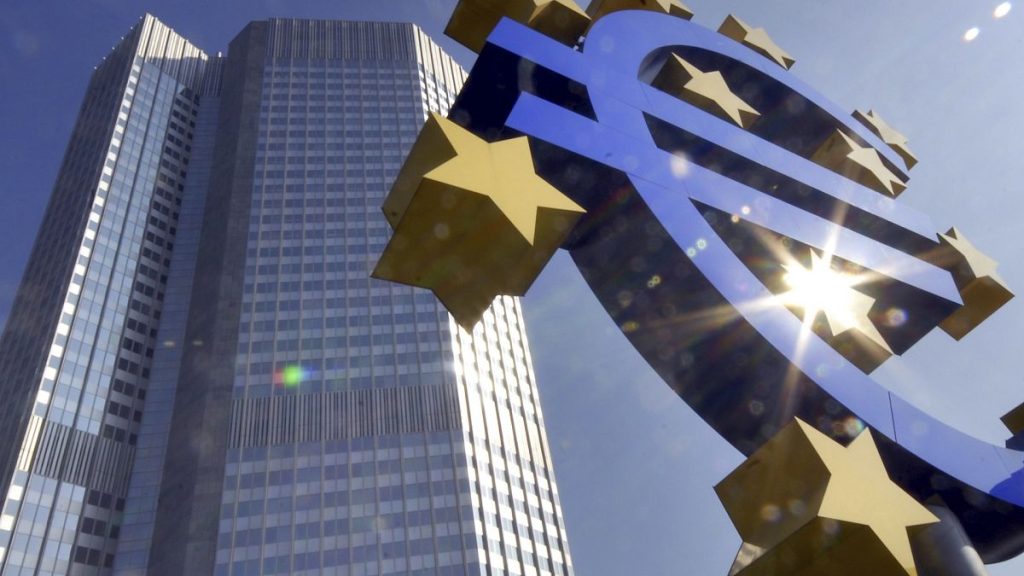The European Central Bank (ECB) implemented a 25-basis-point interest rate cut in December 2023, lowering the rate to 3%, in response to a weakening Eurozone economy. This decision, while aimed at bolstering economic activity, was met with considerable disagreement among policymakers regarding the appropriate level of intervention. The minutes from the December meeting reveal a significant divide within the Governing Council, with some members advocating for a more aggressive 50-basis-point reduction to counter mounting economic risks, while others cautioned against such a drastic move, fearing negative market repercussions. This divergence in opinion highlights the complex challenges facing the ECB as it navigates a landscape of sluggish growth, easing inflation, and heightened global uncertainties.
The rationale behind the rate cut stemmed from concerns over slowing economic growth and declining inflation. New economic projections presented to the Governing Council in December painted a less optimistic outlook for the Eurozone’s recovery than previously anticipated. A general consensus emerged among policymakers that lower interest rates and looser financing conditions were necessary to ensure inflation stabilized around the ECB’s 2% target. However, the magnitude of the rate cut proved to be a contentious issue. While all members ultimately supported the 25-basis-point reduction, some argued that a bolder 50-basis-point cut would have been a more effective measure to stimulate growth, citing repeated downward revisions of economic forecasts. Conversely, other members expressed reservations about such a substantial cut, fearing it could be misinterpreted by markets as a sign of panic or a more pessimistic assessment of the economic situation than warranted.
Adding to the complexity of the ECB’s decision-making process were growing political uncertainties within the Eurozone and escalating global trade tensions. The potential impact of new US tariffs on Chinese goods was a significant concern, as it could disrupt global trade flows and have unpredictable consequences for inflation and economic growth in the Eurozone. Specifically, the possibility of China redirecting its exports to Europe in response to US tariffs raised concerns about potential inflationary pressures and distortions in economic activity. Furthermore, the political landscape within Europe, marked by instability in some member states, including France’s struggle to form a stable government and Germany’s impending snap election, added another layer of uncertainty to the ECB’s outlook.
The confluence of these domestic and international challenges placed the ECB in a delicate position. While the rate cut was deemed necessary to support the weakening economy, policymakers refrained from signaling any definitive course of action for future monetary policy decisions. Instead, they adopted a data-dependent and meeting-by-meeting approach, emphasizing the need to carefully assess incoming economic data before making further adjustments. This cautious stance reflects the ECB’s awareness of the complexities and uncertainties surrounding the Eurozone’s economic outlook, recognizing that monetary policy alone may not be sufficient to address deep-rooted structural issues.
Underlying the ECB’s deliberations was the recognition that some of the Eurozone’s economic challenges are structural in nature, requiring broader policy responses beyond the scope of monetary policy. The minutes highlight the view that monetary policy cannot single-handedly address long-term growth issues, emphasizing the need for governments to take a more active role in tackling structural weaknesses. This underscores the limitations of monetary policy in addressing fundamental economic challenges and emphasizes the importance of coordinated policy efforts to achieve sustainable growth. The ECB’s decision, therefore, represents a balancing act between providing necessary economic support in the short term and acknowledging the limitations of monetary policy in addressing deeper structural issues.
Looking ahead, financial markets anticipate further interest rate cuts in 2024, although the precise timing and magnitude of these cuts remain uncertain. The ECB faces the challenging task of navigating a complex economic environment characterized by cooling inflation but rising global risks. This requires a careful balancing act between providing sufficient economic stimulus and avoiding overly aggressive moves that could destabilize markets or exacerbate existing risks. The ECB’s future policy decisions will depend on a close monitoring of economic data, a careful assessment of evolving risks, and a continued dialogue among policymakers regarding the appropriate course of action. The path forward remains uncertain, requiring a delicate balancing act between supporting the economy and managing potential risks.














